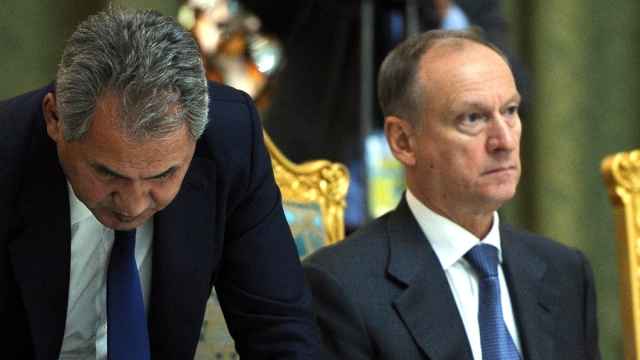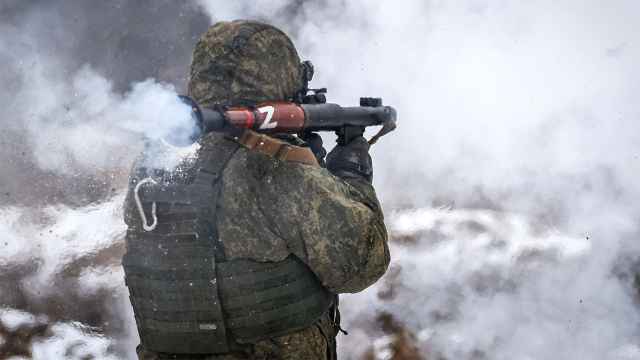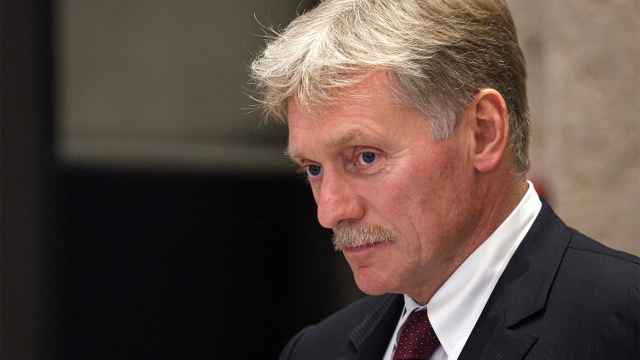Members of Russia’s political elite have turned to alcohol as they cope with the growing pressures brought on by Moscow's war in Ukraine, independent media has reported, citing anonymous sources close to the Kremlin, parliament and regional administrations.
Alcohol abuse has hit new highs since March, when the International Criminal Court issued an arrest warrant against President Vladimir Putin and news emerged that Kyiv was readying a counteroffensive to reclaim captured territories, according to the news website Vyorstka.
Kremlin banquets have recently increased alcohol limits from one to two bottles per person, a Kremlin-linked political strategist was cited as saying.
A deputy governor from a region in central Russia confessed to Vyorstka’s reporter, after a series of lewd text messages, that he had started drinking more after the start of the war.
“Let’s put it this way — not everyone in the presidential administration used to start their day with a glass of vodka [before the war],” one anonymous source told Vyorstka.
“Now I know a lot more people like that, and some people’s glass has turned into a bottle.”
Vyorstka’s report suggests the Russian elite has largely ignored Putin’s rare public entreaty made last summer to tamp down on their alcohol consumption.
A September report by the independent Meduza news outlet stressed that Putin, who famously abstains from drinking, had grown increasingly annoyed by the alcohol-induced lag in discipline among his inner circle.
“Putin believes the bureaucrats should have an easier time coping” with sanctions and other consequences resulting from Russia’s protracted military campaign in Ukraine, Meduza cited one of its own sources as saying at the time.
But one of Vyorstka’s sources said that apparatchiks, government officials, public-facing politicians and governors continued to “miss meetings, use illegal substances, disrupt meetings and attend events while drunk.”
Though drinking is the most common form of escapism among Russia’s elite, journalists noted that three general coping mechanisms had emerged among officials since the start of the war.
“Honest officials” who no longer see meaning in their work have resorted to alcohol, random sexual encounters and sports as means of escapism.
A second cohort of officials began devoting their work to small deeds and acts of kindness.
The third — and largest — contingent has chosen to ignore the war-related issues and “swim with the current behind Putin and their superiors,” one of Vyorstka’s sources said.
“They do their job and try not to talk, and probably not even think, about why they need it.”
A Message from The Moscow Times:
Dear readers,
We are facing unprecedented challenges. Russia's Prosecutor General's Office has designated The Moscow Times as an "undesirable" organization, criminalizing our work and putting our staff at risk of prosecution. This follows our earlier unjust labeling as a "foreign agent."
These actions are direct attempts to silence independent journalism in Russia. The authorities claim our work "discredits the decisions of the Russian leadership." We see things differently: we strive to provide accurate, unbiased reporting on Russia.
We, the journalists of The Moscow Times, refuse to be silenced. But to continue our work, we need your help.
Your support, no matter how small, makes a world of difference. If you can, please support us monthly starting from just $2. It's quick to set up, and every contribution makes a significant impact.
By supporting The Moscow Times, you're defending open, independent journalism in the face of repression. Thank you for standing with us.
Remind me later.






